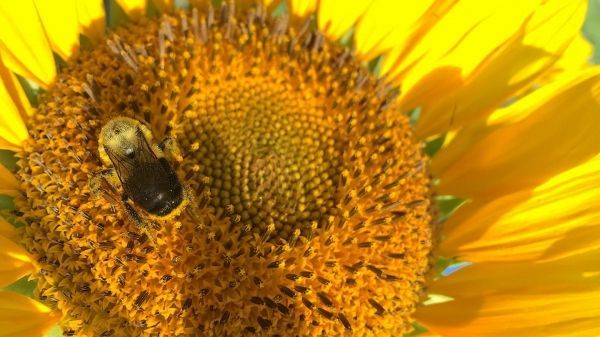With bee populations in decline, a new study offers hope for a relatively simple mechanism to promote bee health and well-being: providing bees access to sunflowers.
The study, conducted by researchers at North Carolina State University and the University of Massachusetts Amherst, showed that two different species of bees fed a diet of sunflower pollen had dramatically lower rates of infection by specific pathogens. Bumble bees on the sunflower diet also had generally better colony health than bees fed on diets of other flower pollens.
The study showed that sunflower pollen reduced infection by a particular pathogen (Crithidia bombi) in bumble bees (Bombus impatiens). Sunflower pollen also protected European honey bees (Apis mellifera) from a different pathogen (Nosema ceranae). These pathogens have been implicated in slowing bee colony growth rates and increasing bee death.
The study also showed a deleterious effect, however, as honey bees on the sunflower diet had mortality rates roughly equivalent to honey bees not fed a pollen diet and four times higher than honey bees fed buckwheat pollen. This mortality effect was not observed in bumble bees.
Read more at North Carolina State University
Image: Honey bees fed a diet of sunflower pollen show dramatically lower rates of infection by a specific pathogen. (Credit: Jonathan Giacomini, NC State University)


